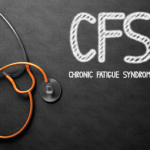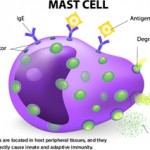
Zenzen / shutterstock.com
ACR CONVERGENCE 2020—Myalgic encephalomyelitis/chronic fatigue syndrome, postural orthostatic tachycardia syndrome (POTS) and mast cell activation syndrome were the topics of the day in the ever-popular Curbside Consults session in November 2020.
POTS
An anxious woman with a chronic headache and constant myofascial pain in the neck and upper back, assorted gastrointestinal symptoms, chronic severe fatigue, normal lab results and disabled out of proportion with the rest of the clinical picture presents to your clinic. Although your initial thoughts on a diagnosis may turn toward fibromyalgia or conversion disorder, the patient could have POTS, said Tae Chung, MD, assistant professor of physical medicine and rehabilitation, and director of the POTS program at Johns Hopkins University, Baltimore.

Dr. Chung
“It’s a really common condition, and there’s a pretty good chance you have already seen [such] patients,” he said in an ACR Convergence Curbside Consults session on disorders that can sometimes be overlooked.
The condition is of increasing interest in rheumatology because emerging evidence suggests it could involve sympathetic function of blood vessels that may have an autoimmune mechanism, Dr. Chung said.
Clinical features of POTS include a severe, profound fatigue, chronic muscle pain and headache, and complaints about nausea and vomiting. Patients may or may not experience palpitations when upright. They may perceive the symptom as discomfort, so clinicians should be careful when interpreting symptoms, Dr. Chung said. POTS usually starts with an infection or traumatic event when the patient is in their late teens or early 20s.
Blood vessels are innervated by sympathetic nerve fibers that, in their way, pump blood to tissues when needed, such as during exercise or when the body changes position. If this pump mechanism malfunctions, there can be a strong sympathetic response to try to fix the pump, Dr. Chung said.
Fatigue, dizziness and migraine can be attributed to the pump failure, but other symptoms, such as anxiety, nausea and muscle pain, can be attributed to sympathetic overcompensation, he said.
Growing evidence indicates autoimmune inflammation can instigate POTS; 40–50% of cases are preceded by an infection, either bacterial or viral, including COVID-19—and ganglionic AChR receptor autoantibody is found in about 5% of POTS patients. Research continues to try to identify other autoantibodies involved, Dr. Chung said.
Pump failure symptoms may be addressed by aggressive volume expansion (e.g., 4 L water and 4 g sodium daily, scheduled administration of intravenous normal saline), medications (e.g., fludrocortisone, midodrine) and careful introduction of exercise. Sympathetic overactivity may be treated with low-dose beta blockers, meditation and mindfulness. Dr. Chung emphasized that in some patients, exercise and beta blockade may exacerbate symptoms, so both must be introduced and monitored carefully.
Although it can be difficult to establish which patients have an autoimmune diathesis, some of these patients may respond to immunosuppressive or immunomodulatory agents, such as IVIG.


